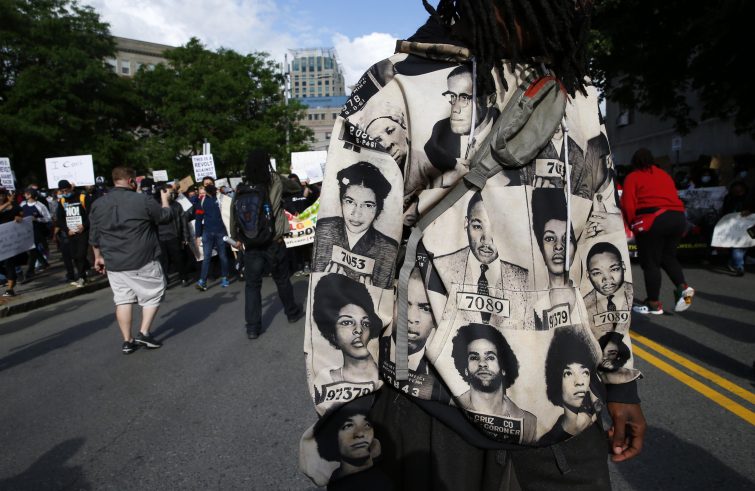
(from New York) 8′.46” is the symbol of the new civil rights movement. Eight minutes, 46 seconds is the length of time George Floyd was pinned to the ground under police officer Derek Chauvin’s knee before he died.
8’46” was enough for a white man to suck the life out of an African-American man on a street in Minneapolis.
Today George Floyd’s casket will return to Houston, where he had moved to in his youth and which had become his hometown. Here he will be paid his final tribute, after those paid to him in North Carolina where he was born and in Minneapolis, where he died. The memorial service was attended by deputies, singers, actors, Martin Luther King III, the Reverend Jess Jackson, the Chief of Police of Minneapolis who knelt at the passage of the coffin, along with many African-American and white men and women who knelt and wept, like the mayor of the city, pleading for reconciliation, pledging for the end of racism and undue violence.
The same occurred in hundreds of cities across the globe, with citizens taking to the streets to confront their own discrimination, inequalities, injustices, all inspired by this African-American man who died after begging for air, breath, life from those who were supposed to protect him.
In over 350 cities in the United States, including rural America, protesters took to the streets and occupied public squares, occasionally kneeling or lying on the ground, imitating victims of police. The global wave of protests has inspired also small minority groups to raise their voices and make themselves heard, albeit still met with hostility on the other side. And yet undeniably, for two weeks on end, people have come together, protesting against rampant violence against black people, while today the Black Lives Matter movement has become transnational and universally acclaimed.
Meanwhile, removed from the spotlight of public squares, hundreds of volunteers descended downtown Minneapolis armed with brooms and garbage bags to clean up the remains of vandalism, fires and rallies. Some activists with no distinctive logos have started distributing food in areas where grocery stores were shut down as a result of destruction and rioting.
A former Sheraton Hotel, damaged by protesters, was transformed by Joe Kruse, member of the Catholic Worker community, together with a group of volunteers, into a shelter for the homeless: the most vulnerable victims of searches and detentions, including the uncontrolled riots.
Thanks to social media campaigns, suburbs and neighbouring towns donated funds to refurbish the premises.
“We are building something good here,” Ellen Koneck told the National Catholic Reporter. “”It looks messy right now, but we’re building something good. Nobody has any doubt about that.” Ultimately everyone has at heart the good of the community, besides the riots that inflamed and bloodstained it.
“It’s a new way of doing it rather than just waiting and begging and hoping. Take the initiative. Make it happen once you have the power,”
Kruse said. At the same time, other social justice organizations have raised an impressive $2.5 million to help rebuild businesses damaged by the riots, according to local Star Tribune newspaper.
The Archbishop of Minneapolis Bernard Hebda expressed his understanding for the anger that inflamed the city “particularly because this is not the first time that our community went through such an experience, and in fact in the last five years the local police have been implicated in other deaths, and although I’d like to say that it has no place in the Church, we recognize that we also bring our humanity there and that facing this scourge will not be an easy task.”
Meanwhile open conversations were initiated in the diocese, inspired by the letters on racism of the US Bishops’ Conference
Along with enhanced support for African-American leadership in communities.












